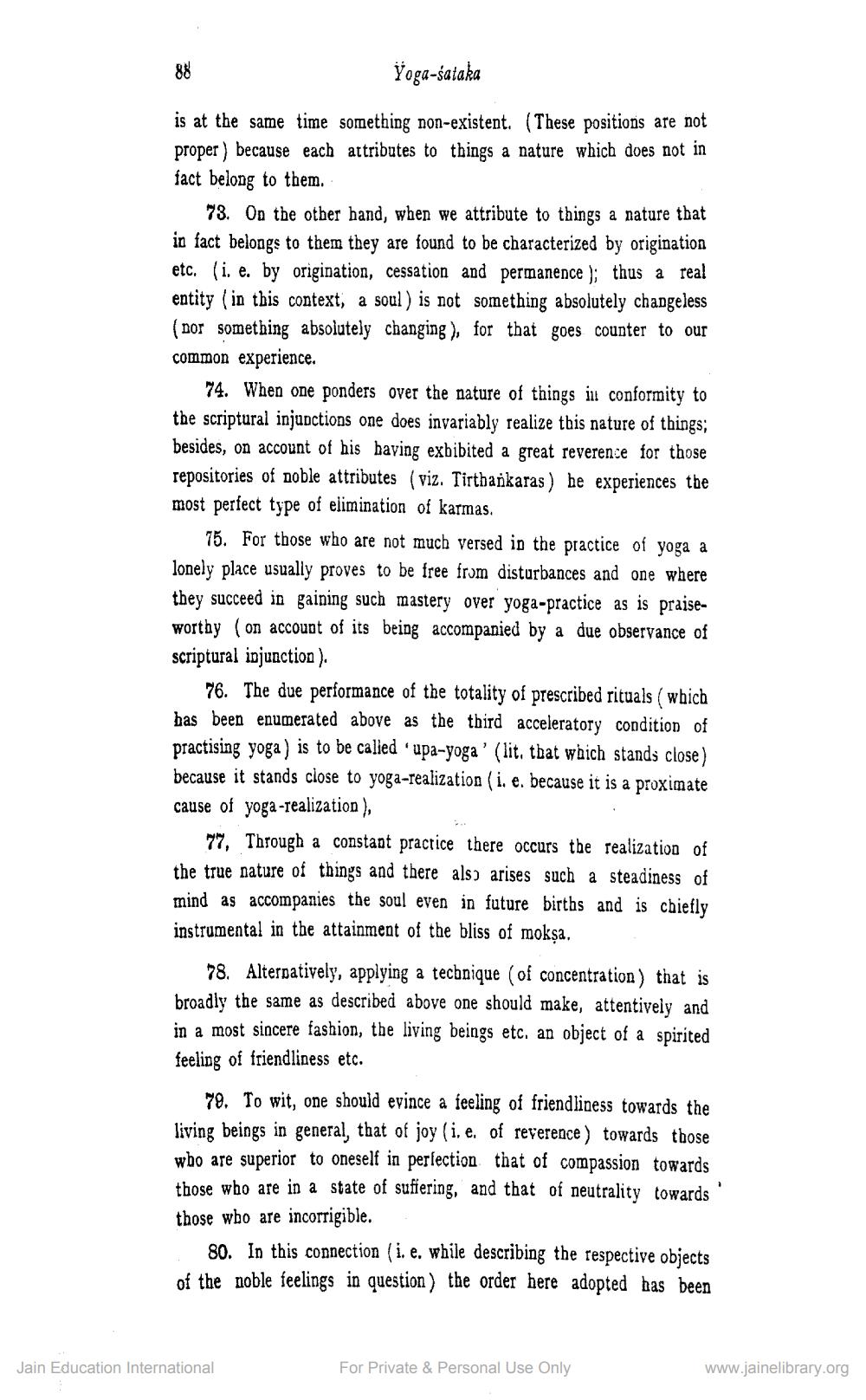________________
Yoga-sataka
is at the same time something non-existent. (These positions are not proper) because each attributes to things a nature which does not in fact belong to them.
88
73. On the other hand, when we attribute to things a nature that in fact belongs to them they are found to be characterized by origination etc. (i. e. by origination, cessation and permanence); thus a real entity (in this context, a soul) is not something absolutely changeless (nor something absolutely changing), for that goes counter to our common experience.
74. When one ponders over the nature of things in conformity to the scriptural injunctions one does invariably realize this nature of things; besides, on account of his having exbibited a great reverence for those repositories of noble attributes (viz. Tirthankaras) he experiences the most perfect type of elimination of karmas.
75. For those who are not much versed in the practice of yoga a lonely place usually proves to be free from disturbances and one where they succeed in gaining such mastery over yoga-practice as is praiseworthy (on account of its being accompanied by a due observance of scriptural injunction).
76. The due performance of the totality of prescribed rituals (which has been enumerated above as the third acceleratory condition of practising yoga) is to be called 'upa-yoga' (lit. that which stands close) because it stands close to yoga-realization (i. e. because it is a proximate cause of yoga-realization),
77, Through a constant practice there occurs the realization of the true nature of things and there also arises such a steadiness of mind as accompanies the soul even in future births and is chiefly instrumental in the attainment of the bliss of moksa.
78. Alternatively, applying a technique (of concentration) that is broadly the same as described above one should make, attentively and in a most sincere fashion, the living beings etc. an object of a spirited feeling of friendliness etc.
79. To wit, one should evince a feeling of friendliness towards the living beings in general, that of joy (i. e. of reverence) towards those who are superior to oneself in perfection that of compassion towards those who are in a state of suffering, and that of neutrality towards those who are incorrigible.
80. In this connection (i. e. while describing the respective objects of the noble feelings in question) the order here adopted has been
Jain Education International
For Private & Personal Use Only
www.jainelibrary.org




